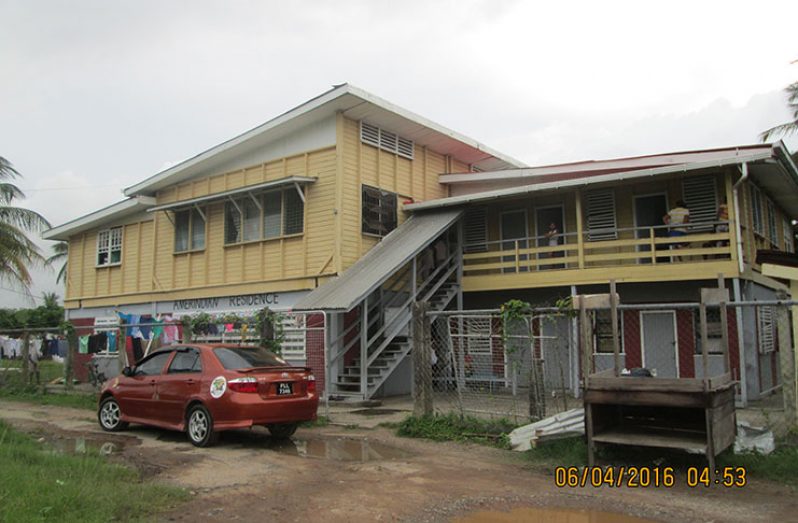THE building which houses indigenous folks at Lot 36 Mudflat, New Amsterdam, will now accommodate students from the Canje Creek riverain community, following the recent completion of rehabilitation works, Regional Chairman, David Armogan has said.
The rehabilitation was done to the tune of $9M and the building will be renamed the Students Hostel, instead of the Amerindian Hostel, a name it had for more than three decades.
The hostel at Stanleytown caters for children from communities along the Berbice River.
Children of Bara Cara, a community that is deep up the Canje River, who were successful at the National Grade Six Examinations and had been placed in secondary schools in the townships, will be granted placement at the hostel.
Over the years, the New Amsterdam Amerindian Hostel has transformed itself, primarily from a residence, which was intended for secondary school students from the riverain and hinterland areas, to a building which houses permanent families.
“This has got to stop. Initially, it was intended for persons from the hinterland/riverain communities, who would leave their respective village and travel with their agricultural produce or logs to have the items sold within the township within a few days before returning to their villages. But, it is not so now. We have permanent residents, and there are students who are in need of a place to stay, so as to complete their secondary education,” Armogan said.
It was noted that persons are overstaying their time and are conducting varying businesses, which are unacceptable even though the hostel’s operation is being financed by the Region Six Administration.
The hostel, which is housed on the upper-flat of the two storied concrete and wooden building, caters for 12 students, an equal number of boys and girls, from riverain areas, who were awarded placements at secondary schools in New Amsterdam.
Following reconstruction of the building in the early 1980s, it was managed for four years by the New Amsterdam Lions Club, under the presidency of Mavis Smith, before it was handed over to the regional administration.
A captain was appointed to manage its affairs and subsequently, house mothers were appointed and parents had the responsibility to pay for their children’s upkeep. That money was used to pay the salary of the house mother. However, some parents failed to honour their responsibility and their children were sent home.
Other students were forced to return home due to a ‘spiritual attack’ at the hostel, and yet others sought alternative living arrangements in the township.
Caretaker, Sybil Morris, noted that it took a while before students returned. She said permission had to be sought from the Regional Administration, allowing parents to stay with their secondary school-aged children, as well as their younger children placed at primary and nursery schools in the township.
She lamented about the behaviour pattern of the occupants, pointing out that “each parent trains his or her child differently.”
In addition, although the upper-flat was designed to accommodate 12 students, along with a house mother, more persons are housed there, and this has created a situation where there are rifts amongst families.
Morris welcomes the idea of opening the hostel to students from other communities and is optimistic that the need for house mothers/ house fathers and security will be urgently addressed.



.jpg)










